Important presentations coming up; COVID research continues across fields rom diabetes and allergy, to mental health and community transmission; advances in the management of epilepsy, inflammatory conditions and upper gastrointestinal cancer; discussions continue into fixing aged care and how locations impacts your chance of getting the latest treatments; while further afield, our researchers boost COVID awareness in PNG and study gender inequality in the Asia-Pacfic. Here’s just some of the news from this week at Alfred Research Alliance.
MONASH CENTRAL CLINICAL SCHOOL
TONIGHT: From the Frontline: Using Nursing’s Diverse Expertise During COVID-19
 Nurses and midwives have been on the frontline of the global pandemic. Tonight, at 7pm, a free webinar will explore the diversity of roles nursing experts are currently leading in the fight against COVID-19. From educating the future generation of nurses and midwives to helping shape policy and guidelines to provide the best possible care for all Australians, this will be a fascinating insight from a panel of experts. Find out more and register here…
Nurses and midwives have been on the frontline of the global pandemic. Tonight, at 7pm, a free webinar will explore the diversity of roles nursing experts are currently leading in the fight against COVID-19. From educating the future generation of nurses and midwives to helping shape policy and guidelines to provide the best possible care for all Australians, this will be a fascinating insight from a panel of experts. Find out more and register here…New era of personalised epilepsy management
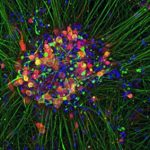 Prof Patrick Kwan and Monash CCS colleagues have contributed to a series of articles in The British Medicine Journal (BMJ) profiling brain health. Their article, ‘New era of personalised epilepsy management’, they write that the ‘trial and error’ approach to epilepsy treatment has not changed for over a century, but machine learning and patient-derived stem cells promise a personalised and more effective strategy. Read more…
Prof Patrick Kwan and Monash CCS colleagues have contributed to a series of articles in The British Medicine Journal (BMJ) profiling brain health. Their article, ‘New era of personalised epilepsy management’, they write that the ‘trial and error’ approach to epilepsy treatment has not changed for over a century, but machine learning and patient-derived stem cells promise a personalised and more effective strategy. Read more…
Researchers answer COVID-19 questions
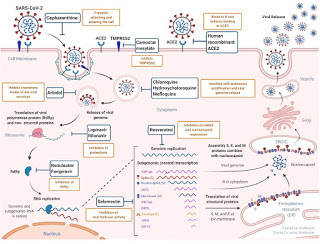 The ongoing COVID-19 pandemic has certainly raised plenty of questions, and now Monash researchers Prof Robyn O’Hehir and A/Prof Menno van Zelm have joined a panel of international clinicians and researchers answering 150 key questions relating to SARS-CoV-2, COVID-19 and allergy. Their answers will be included in a Q&A compendium. Read more…
The ongoing COVID-19 pandemic has certainly raised plenty of questions, and now Monash researchers Prof Robyn O’Hehir and A/Prof Menno van Zelm have joined a panel of international clinicians and researchers answering 150 key questions relating to SARS-CoV-2, COVID-19 and allergy. Their answers will be included in a Q&A compendium. Read more…
Public lecture on sudden unexpected death in epilepsy
 Epilepsy is a lifelong, and life-threatening neurological condition estimated to affect over 65 million people worldwide, putting some 150,000 Australians at three times the risk of death as that of the general population. Sudden Unexpected Death in Epilepsy ( SUDEP) is the topic of this year’s Monash CCS Public Lecture at 6pm on Thursday 29 October which will this year be presented by Prof Terry O’Brien, Head of the Central Clinical School, Program Director Alfred Brain and Deputy Director of Research, Alfred Health. Read more or register to attend…
Epilepsy is a lifelong, and life-threatening neurological condition estimated to affect over 65 million people worldwide, putting some 150,000 Australians at three times the risk of death as that of the general population. Sudden Unexpected Death in Epilepsy ( SUDEP) is the topic of this year’s Monash CCS Public Lecture at 6pm on Thursday 29 October which will this year be presented by Prof Terry O’Brien, Head of the Central Clinical School, Program Director Alfred Brain and Deputy Director of Research, Alfred Health. Read more or register to attend…
New COVID-19 Diabetes registry building numbers
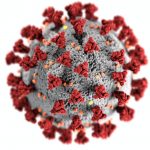 A team of international diabetes researchers from Monash University and King’s College London have established a global registry to investigate the possible connection between COVID-19 and diabetes. Prof Paul Zimmet says the COVIDIAB registry was born from an apparent link beteween COVID-19 infection and the development of diabetes, with the team expecting to gather hundreds of cases. Read more…
A team of international diabetes researchers from Monash University and King’s College London have established a global registry to investigate the possible connection between COVID-19 and diabetes. Prof Paul Zimmet says the COVIDIAB registry was born from an apparent link beteween COVID-19 infection and the development of diabetes, with the team expecting to gather hundreds of cases. Read more…
MONASH PUBLIC HEALTH AND PREVENTIVE MEDICINE
Keeping COVID waves small
 A new Monash study reveals Stage 4 started too late to control COVID-19 community transmission, and recommends an early warning system and national mandatory mask wearing. A/Prof Lei Zhang from Monash University’s Melbourne Sexual Health Centre, studied Victoria’s first and second waves of COVID-19 infections, and is publishing his results in The Innovation journal. Read more…
A new Monash study reveals Stage 4 started too late to control COVID-19 community transmission, and recommends an early warning system and national mandatory mask wearing. A/Prof Lei Zhang from Monash University’s Melbourne Sexual Health Centre, studied Victoria’s first and second waves of COVID-19 infections, and is publishing his results in The Innovation journal. Read more…
Fixing Aged Care in Australia
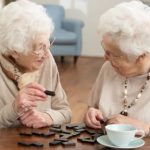 COVID-19 and the aged care royal commission have shone a light on a broken system, making the need for change in residential aged care abundantly clear. Prof Joseph Ibrahim this week discussed the various aspects and approaches to be considered, arguing for a resident focused design and greater accountability – but warned that fixing the system will take ‘guts’. Read more…
COVID-19 and the aged care royal commission have shone a light on a broken system, making the need for change in residential aged care abundantly clear. Prof Joseph Ibrahim this week discussed the various aspects and approaches to be considered, arguing for a resident focused design and greater accountability – but warned that fixing the system will take ‘guts’. Read more…Improving quality of life for patients with upper gastrointestinal cancer

Some 220 Australians each week are diagnosed with upper-gastrointestinal cancer and of those only 10.7% will survive the following five years. Creating a positive treatment experience that maintains a good quality of life for those patients, and takes their own goals into account, is therefore vital. The new PROpatient clinical trial, part of SPHPM’s Upper Gastrointestinal Cancer Registry, aims to improve quality of life with this condition through patient reported outcomes, symptom monitoring and care coordination. Read more…
BAKER HEART AND DIABETES INSTITUTE
Diabetes treatment depends on where you live
 People living with diabetes in remote areas are far less likely to access newer diabetes medicines compared to those in metropolitan cities, a new study from the Baker Heart and Diabetes Institute has found. Jedidiah Morton, PhD student in the Baker Institute’s Clinical Diabetes and Epidemiology lab, led the study of data from 1.2 million Australians living with type 2 diabetes. It showed people from remote areas were 62% less likely to receive the newest diabetes medications than their metropolitan counterparts. Read more…
People living with diabetes in remote areas are far less likely to access newer diabetes medicines compared to those in metropolitan cities, a new study from the Baker Heart and Diabetes Institute has found. Jedidiah Morton, PhD student in the Baker Institute’s Clinical Diabetes and Epidemiology lab, led the study of data from 1.2 million Australians living with type 2 diabetes. It showed people from remote areas were 62% less likely to receive the newest diabetes medications than their metropolitan counterparts. Read more…
Novel inflammation drug in development
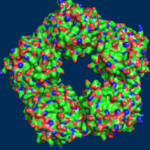 Researchers at the Baker Institute and the University of Melbourne are taking the next steps in developing a new anti-inflammatory drug that could lessen the damage from heart attacks, extend the viability of transplanted organs, help treat autoimmune diseases such as multiple sclerosis, and even reduce fatal complications from viruses like COVID-19. The project involves Baker Institute researchers Prof Karlheinz Peter, Dr James McFadyen, Dr Guy Krippner and Prof Geoff Pietersz. Read more…
Researchers at the Baker Institute and the University of Melbourne are taking the next steps in developing a new anti-inflammatory drug that could lessen the damage from heart attacks, extend the viability of transplanted organs, help treat autoimmune diseases such as multiple sclerosis, and even reduce fatal complications from viruses like COVID-19. The project involves Baker Institute researchers Prof Karlheinz Peter, Dr James McFadyen, Dr Guy Krippner and Prof Geoff Pietersz. Read more…
BURNET INSTITUTE
Burnet researcher wins Hepatitis Victoria award
 Burnet Institute’s Dr Alisa Pedrana, has been recognised for her outstanding contribution to eliminate hepatitis C, winning Hepatitis Victoria LiverWELL Individual Contribution Award for 2020. Accepting the honour at Hepatitis Victoria’s virtual award ceremony this week, Dr Pedrana said it was recognition of her talented team and their commitment to work closely with Victorian communities to eliminate the chronic disease. Read more…
Burnet Institute’s Dr Alisa Pedrana, has been recognised for her outstanding contribution to eliminate hepatitis C, winning Hepatitis Victoria LiverWELL Individual Contribution Award for 2020. Accepting the honour at Hepatitis Victoria’s virtual award ceremony this week, Dr Pedrana said it was recognition of her talented team and their commitment to work closely with Victorian communities to eliminate the chronic disease. Read more…
Boosting COVID awareness in PNG
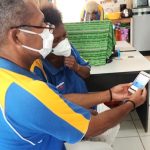 Burnet staff have set up tools to assist health education and counselling in Papua New Guinea (PNG), to improve understanding of COVID-19 and address common myths and misinformation. Set up in Daru, Western Province, the Australian NGO Cooperation Program (ANCP) supported project is empowering those within the TB-affected community to support their peers through treatment and health promotion. The tools and resources are similar to one Burnet and partner organisations are using for TB patients. Read more…
Burnet staff have set up tools to assist health education and counselling in Papua New Guinea (PNG), to improve understanding of COVID-19 and address common myths and misinformation. Set up in Daru, Western Province, the Australian NGO Cooperation Program (ANCP) supported project is empowering those within the TB-affected community to support their peers through treatment and health promotion. The tools and resources are similar to one Burnet and partner organisations are using for TB patients. Read more…
Early adolescence central to gender inequality in Asia-Pacific
 Early adolescence is where gender inequalities most markedly emerge according to new research led by Burnet Institute and funded by UNICEF. Published in The Lancet Global Health, the research systemically analyses gender inequality across childhood and adolescence in 40 Asian countries, and includes in-depth analysis of 87 indicators measuring health, education and transition to employment, protection, and the safety of the environment in which young people live. Read more or watch the video…
Early adolescence is where gender inequalities most markedly emerge according to new research led by Burnet Institute and funded by UNICEF. Published in The Lancet Global Health, the research systemically analyses gender inequality across childhood and adolescence in 40 Asian countries, and includes in-depth analysis of 87 indicators measuring health, education and transition to employment, protection, and the safety of the environment in which young people live. Read more or watch the video…
ALFRED HEALTH
Prof Anton Peleg receives AAHMS Fellowship
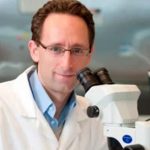 One of Alfred Health’s leading physician-scientists has been recognised for his ground-breaking work in the area of infectious diseases. Professor Anton Peleg, an internationally-recognised expert in antimicrobial resistance, was recently elected as a Fellow of the Australian Academy of Health and Medical Sciences (AAHMS). His contributions to infection-immunity research, clinical trials, prevention of outbreaks, device infections and microbial genomics has been a driving force behind a number of guidelines globally. Read more…
One of Alfred Health’s leading physician-scientists has been recognised for his ground-breaking work in the area of infectious diseases. Professor Anton Peleg, an internationally-recognised expert in antimicrobial resistance, was recently elected as a Fellow of the Australian Academy of Health and Medical Sciences (AAHMS). His contributions to infection-immunity research, clinical trials, prevention of outbreaks, device infections and microbial genomics has been a driving force behind a number of guidelines globally. Read more…
A+ Response for mental health
 Alfred Health’s Mental and Addiction Health Triage Team have seen a 30% increase in demand for their service since the COVID-19 pandemic started. This has prompted the establishment of the Triage + response team of mental health clinicians who are available 24/7 to support people suffering from stress, anxiety, depression or any other mental health issues that are pre-existing or have been exacerbated by the pandemic. Those who need support can contact the team on 1300 363 746 24-hours a day, seven days a week. Read more…
Alfred Health’s Mental and Addiction Health Triage Team have seen a 30% increase in demand for their service since the COVID-19 pandemic started. This has prompted the establishment of the Triage + response team of mental health clinicians who are available 24/7 to support people suffering from stress, anxiety, depression or any other mental health issues that are pre-existing or have been exacerbated by the pandemic. Those who need support can contact the team on 1300 363 746 24-hours a day, seven days a week. Read more…
Focus on youth
 There’s been a pronounced spike in mental health issues like eating disorders, depression and anxiety in youth during the COVID-19 restrictions. Alfred Child & Youth Mental Health Service (CYMHS) director Paul Denborough says it’s been particularly challenging for young people. “They’re going through that developmental stage to work out who they are, which is largely done through their peer group,” Dr Denborough said.“If they’re not able to interact normally, they’re much more likely to be exposed to anxiety.” Read more…
There’s been a pronounced spike in mental health issues like eating disorders, depression and anxiety in youth during the COVID-19 restrictions. Alfred Child & Youth Mental Health Service (CYMHS) director Paul Denborough says it’s been particularly challenging for young people. “They’re going through that developmental stage to work out who they are, which is largely done through their peer group,” Dr Denborough said.“If they’re not able to interact normally, they’re much more likely to be exposed to anxiety.” Read more…
Huge response to WardRobe project
 The Alfred’s WardRobe project, launched by the Mental Health and Addiction team to provide spare clothes for patients who have only the clothes in which they are admitted, has generated a huge response. Donations of good, clean and wearable pre-loved clothing in all adult sizes are still being sought, particularly shirts and t-shirts, jackets, jumpers and cardigans and pants, as well as new shoes and underwear. Clothes can be left in the donation bin at The Alfred. Find out more…
The Alfred’s WardRobe project, launched by the Mental Health and Addiction team to provide spare clothes for patients who have only the clothes in which they are admitted, has generated a huge response. Donations of good, clean and wearable pre-loved clothing in all adult sizes are still being sought, particularly shirts and t-shirts, jackets, jumpers and cardigans and pants, as well as new shoes and underwear. Clothes can be left in the donation bin at The Alfred. Find out more…
NUCLEUS NETWORK
Nucleus Network initiates first-in-human trial of oral COVID-19 vaccine candidate
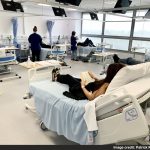
Nucleus Network has commenced a Phase 1, first-in-human trial of bacTRL-Spike™, an orally-delivered, room-temperature stable DNA vaccine candidate for the prevention of COVID-19, at its Brisbane clinic. The trial will evaluate the safety, tolerability, and immunogenicity of Symvivo’s bacTRL-Spike™ in healthy adult volunteers, providing valuable insight to enable the development of a stable, room-temperature oral formulation that can not only be widely and easily distributed, but also self-administered. Read more…
